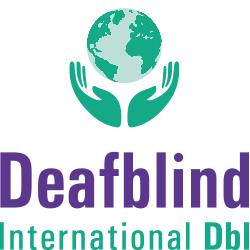Based on data from the report “United Nations World Population Prospects 2022” and the estimates of the deafblind population from the study “Mapping opportunities for deafblind people across Europe”, we can identify an estimated 30 million deafblind people in the world, of whom 14.3 million are over the age of 65 (European Deafblind Network, 2014; Robertson & Emerson, 2010; United Nations Department of Economic and Social Affairs Population Division, 2022). This number is likely to climb, given the importance of age-related causes of vision and hearing impairment (World Health Organization, 2015, 2019, 2021). While definitions of deafblindness according to the medical model rely on behavioural measures, such as pure tone audiograms and visual acuity/visual field, the Nordic Definition (Centre for Welfare and Social Issues, 2016) is most widely accepted, given its focus on functional aspects such as difficulties with communication, access to information, mobility, education, employment, and other variables that reflect daily activities and the ability to participate in society. The population of persons living with deafblindness is extremely heterogeneous, because of variables such as time of onset (congenital, prelingual, adult, age-related), order of onset (simultaneous or one sense at a time), and severity (mild, moderate, severe or total), given that any combination of these variables is possible.
Under the leadership of members of Deafblind International, an international team is currently in the process of developing the first version of the ICF Core Sets for deafblindness.
The collaborating organizations providing in-kind support include (in alphabetical order):
Able Australia, Sydney Australia
Associació Catalana Pro Persones amb Sordceguesa, Spain
Canadian Helen Keller Centre, Canada
Canadian National Institute for the Blind (CNIB), Canada
CNIB Deafblind Community Services, Canada
Centre de réadaptation en déficience physique Raymond-Dewar Laurier du CIUSSS du Centre-Sud-de-l’Île-de-Montréal, Canada
Centre de réadaptation Lethbridge-Layton Mackay du CIUSSS du Centre-Ouest-de l’Île-de-Montréal, Canada
CRESAM, Centre National de Ressources Handicaps Rares – Surdicécité, France
Deafblind Association Nepal
Deafblind Association of Zambia
DeafBlind Ontario Services, Canada
Deafblind International
European Deafblind Network, Spain
Federación Española de Sordoceguera, Spain
Hope City Foundation, Egypt
Institución Fátima, Argentina
Institut Nazareth et Louis-Braille du CISSS de la Montérégie-Centre, Canada
Luyando Deafblind Initiative Foundation
Nationellt kunskapscenter för dövblindfrågor försöker, Sweden
Örebro University, School of Health Sciences, Sweden
Perkins, Egypt
Royal Dutch Kentalis, The Netherlands
Sense International India
Society of Deafblind Parents Nepal
Université de Montréal, École d’optométrie, Canada
World Federation of the Deafblind
Funding has been provided by:
Canadian Hearing Services
Deafblind International
DeafBlind Ontario Services
FRQS Vision Health Research Network
The preparatory phase of the project is currently ongoing. The overall protocol publication (Paramasivam et al., 2021) can be accessed here:
https://journals.plos.org/plosone/article?id=10.1371/journal.pone.0261413
The status of the preparatory studies:
- A systematic literature review was performed during 2021 to identify measures that have been utilized when conducting research with individuals living with deafblindness. The first resulting publication, giving an overview of these measures, has been published. The second publication linking the content of these measures to the ICF codes is currently under revision.
- A qualitative study, conducting interviews with persons living with deafblindness is currently ongoing. Ethics approval has been obtained at the Research Ethics Committee of the Carlos III Institute of Health (Madrid, Spain) and is under review at the Centre de recherche interdisciplinaire en réadaptation du Montréal métropolitain (Montreal, Canada).
- A worldwide expert survey gathered the opinion of international experts who have an expertise in deafblindness. Ethics approval has been obtained at the Research Ethics Committee of the Carlos III Institute of Health (Madrid, Spain) and the Université de Montréal (Montreal, Canada). Data collection was completed on December 1st 2022, and results are expected to be available in early 2024.
- To describe common problems experienced by individuals with hearing loss from a clinical perspective, data within a multicentre cross-sectional study will be collected from centres in different centers across the WHO Regions. Ethics approval has been obtained at the Research Ethics Committee of the Carlos III Institute of Health (Madrid, Spain) and is currently in preparation for additional sites.
We anticipate that the international consensus conference will be held in late 2024.
For more information about the scientific and research aspects of this project, feel free to contact SHOW EMAIL.
If you are interested in participating in the project, please get in touch with our team at SHOW EMAIL
References
Centre for Welfare and Social Issues. (2016). The Nordic definition of deafblindness.
http://www.kuurosokeat.fi/tiedosto/nordic_definition.pdf
European Deafblind Network. (2014). European Deafblind Indicators: Mapping opportunities for deafblind people across Europe.
Paramasivam, A., Jaiswal, A., Minhas, R., Holzhey, P., Keyes, K., Lopez, R., & Wittich, W. (2021). The development of the International Classification of Functioning, Disability and Health Core Sets for deafblindness: A study protocol. PLoS ONE, 16(12 December).
https://doi.org/10.1371/journal.pone.0261413
Robertson, J., & Emerson, E. (2010). Estimating the number of people with co-occurring vision and hearing impairments in the UK.
United Nations Department of Economic and Social Affairs Population Division. (2022). World Population Prospects 2022: Summary of Results – DESA/POP/2022/TR/NO. 3. Author. https://www.un.org/development/desa/pd/sites/www.un.org.development.desa.pd/files/wpp2022_summary_of_results.pdf
World Health Organization. (2015). World Report on Aging and Health. Author.
World Health Organization. (2019). World Report on Vision.
https://www.who.int/publications-detail-redirect/9789241516570
World Health Organization. (2021). World Report on Hearing.
https://www.who.int/publications/i/item/world-report-on-hearing

